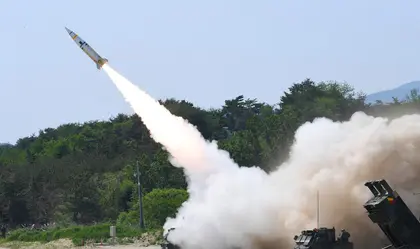While the US and other Western governments have strongly supported Ukraine after it was attacked by Russia in February 2022, American and Western leaders do not seem to have fully grasped that Vladimir Putin sees Russia as being at war with what he calls the “collective West” as a whole. In order for American and Western leaders to deal with Putin effectively, then, they have to reciprocate Putin’s understanding that the war in Ukraine is actually part of an ongoing Russian-Western conflict.
Neither Putin nor Western leaders want an all-out war. But if America and the West are going to persuade or coerce Russia to halt its war against Ukraine, then they are going to have to do more to persuade either Putin, or the Russian military and security force chiefs best placed to oust him, that continuing the war in Ukraine will only weaken Russia, and not strengthen it.
JOIN US ON TELEGRAM
Follow our coverage of the war on the @Kyivpost_official.
To do this effectively, the US and its Western allies need to do more to persuade Putin that the West as a whole, and not just Ukraine, is resolved to oppose him, and that he – and not the West – risks more by the continuation of the war. Here are some policies to consider:
First and foremost, the US and the West should encourage the formation of a democratic Russian government-in-exile. While not (or at least, not at first) recognizing this as the legitimate government of Russia, the US should encourage talks between it and Kyiv about what a Russian-Ukrainian peace settlement should look like. Such a Russian government-in-exile, it must be understood, is going to harbor Russian nationalist sentiments to some degree, and so negotiations between it and Kyiv are unlikely to be smooth. But if a Russian government-in-exile with nationalist credentials and Kyiv could come to a broad agreement about what a settlement to the Russia-Ukraine conflict should look like, this could put pressure on Putin and Russian military and security force chiefs to either accept similar terms or propose others that are acceptable to Ukraine and the West.

Inside the South Korean Weapons Factory That Could Supply Kyiv
Putin himself, of course, is highly likely to reject the terms of any agreement between Ukraine and a Western-backed Russian government-in-exile. But the terms of such an agreement might persuade Russian military leaders fed up with the costs of the war Putin has imposed on them to overthrow Putin, end the war, and so better preserve their own role in a new government (as militaries that have supported democratic revolutions elsewhere have done). The fear of this possibility might even encourage Putin to see himself as better off by ending the war.
In addition, America and the West should do more to exploit Putin’s ill treatment of Russia’s non-Russian minorities. While not actually calling for secession, various US and Western officials could do more to call attention to how Moscow has been especially willing to send Russian Muslims to fight in Ukraine while treating them as second-class citizens. It would also be useful to point out how Muslim governments – including Iran – who cooperate with Russia are turning a blind eye to how Moscow treats its own Muslims. Raising consciousness within the broader Muslim world about the plight of Russian Muslims could also serve to limit how much all too many Muslim governments (including those traditionally aligned with the West) cooperate with Russia.
Further, Western governments should help fund (or better yet, use seized Russian assets or the income from them) and encourage defections from the Russian military and security forces, especially those in Ukraine. Putin has been increasingly resorting to financial incentives for recruiting men to fight in Ukraine. The West can use seized Russian assets to recruit them to stop doing so. But, as shown by Russian troops surrendering to Ukraine in Russian territory near Kursk, which Kyiv’s forces have recently occupied, it may not always be necessary to pay Russian soldiers to surrender.
There is no guarantee that any of these policies will succeed, and there are certainly risks involved in them. But refusing to undertake the kinds of measures that show Putin that the West shares his understanding about how the Ukraine war is actually part of a broader struggle between him and the West risks Putin continuing the war in Ukraine based on the belief that he can outlast the West. Putin or those who could overthrow him will only agree to end the war if they fear that not doing so risks their continued hold over Russia itself.
The views expressed in this opinion article are the author’s and not necessarily those of Kyiv Post.
You can also highlight the text and press Ctrl + Enter






